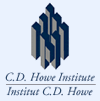The Competition Policy Council comprises top-ranked academics and practitioners active in the field of competition policy.
Time to Reform Telecommunication and Broadcast Policy for the Digital Age
The legislative, regulatory and institutional framework governing the Canadian telecommunications and broadcast sectors is outdated to the point of dysfunction, and requires a fundamental overhaul. This is the consensus view of the C.D. Howe Institute’s Competition Policy Council, which held its eighth meeting on October 23, 2014.
The Competition Policy Council comprises top-ranked academics and practitioners active in the field of competition policy. The Council, chaired by Finn Poschmann, Vice President, Policy Analysis, at the C.D. Howe Institute, provides analysis of emerging competition policy issues. Professor Edward Iacobucci, Osler Chair in Business Law at the University of Toronto and Competition Policy Scholar at the Institute, advises the program, along with Mati Dubrovinsky, Senior Policy Analyst. The Council, whose members participate in their personal capacities, convenes a neutral forum to test competing visions and to share views on competition policy with practitioners, policymakers and the public.
At the October 23rd meeting, the Council addressed the following issues regarding the current framework for telecommunications and broadcast policy: the separation of telecommunications and broadcasting, legislation targeting only traditional players, transparency and predictability of policy, and complexities in wireless spectrum allocation and the state of competition in the sector.
The Council’s consensus view was that technological change in the digital sector forces a rethink of the concepts underpinning telecommunication and broadcast policy, as well as its legislative framework in Canada. To this end, it was recommended that the Minister of Industry, together with the Minister of Canadian Heritage, strike an independent panel to review the current framework as well as propose legislative and institutional alternatives. This would address appropriate policy objectives in the context of the current and future technological environment. Among the aims would be to establish a clear set of policy goals and instruments guided by principles that are independent of the technology at issue.
The proposed panel would make recommendations, in early 2016, on the legislative changes needed to establish the regulatory institutions that would support high quality telecommunication services at appropriate prices for consumers. It would also address relevant policy issues that may arise in the future, such as interactions with broadcast and Canadian content policy.
For the Communiqué, click
here:
C.D. Howe Institute -- Bio and
Archives |
Comments
The C.D. Howe Institute is a national, nonpartisan, nonprofit organization that aims to improve Canadians’ standard of living by fostering sound economic and social policy.
The Institute promotes the application of independent research and analysis to major economic and social issues affecting the quality of life of Canadians in all regions of the country. It takes a global perspective by considering the impact of international factors on Canada and bringing insights from other jurisdictions to the discussion of Canadian public policy.
The Institute encourages participation in and support of its activities from business, organized labour, associations, the professions, and interested individuals. For further information, please contact the Institute’s Development Officer at .(JavaScript must be enabled to view this email address).
